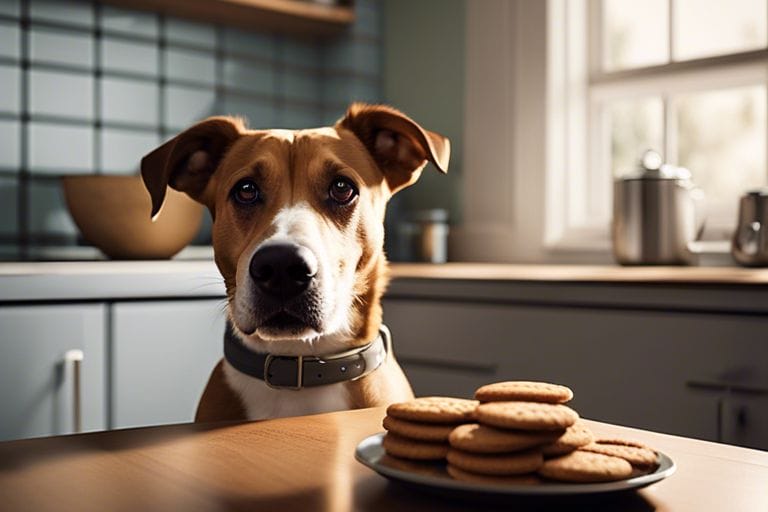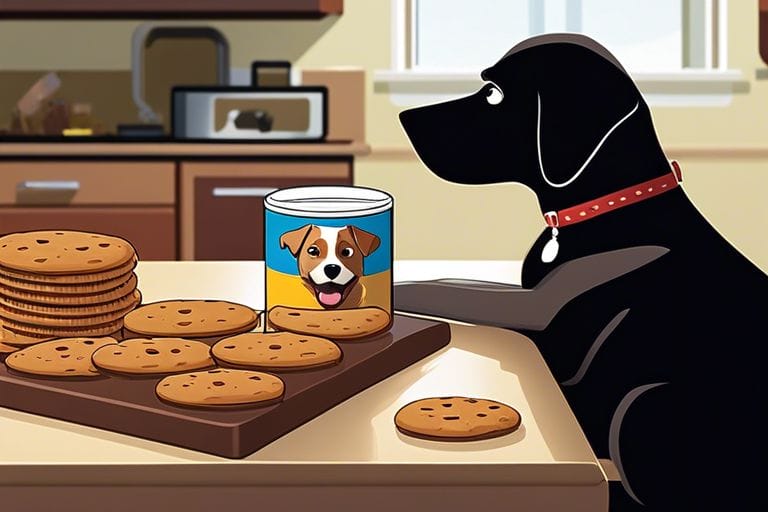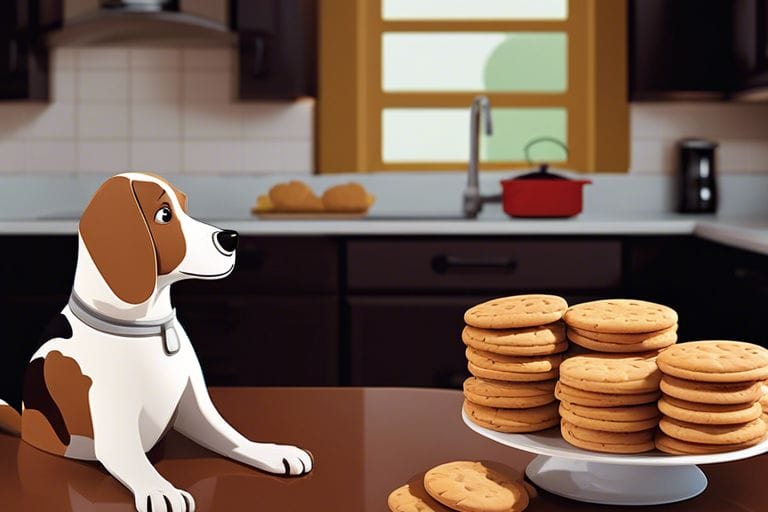Can Dogs Eat Biscuits? Know Before You Share!
Before you reach for that biscuit to share with your furry friend, it’s important to understand the potential risks and benefits. Many biscuits contain harmful ingredients for dogs, such as chocolate, xylitol, and high levels of sugar and fat which can lead to obesity and diabetes. However, there are also dog-friendly biscuits that can be a safe and enjoyable treat for your pet. In this informative blog post, we’ll provide you with essential information on what types of biscuits are safe for dogs, how they can impact your dog’s health, and what signs to look out for if your dog has eaten a biscuit that may be harmful. Keep reading to make sure you’re making the best choices for your furry friend’s well-being!
Key Takeaways:
- Not all biscuits are safe for dogs: While some plain, unsalted biscuits may be okay for dogs in small quantities, many biscuits contain harmful ingredients like chocolate, raisins, or xylitol which can be toxic to dogs.
- Portion control is important: If you decide to share a biscuit with your dog, make sure it is a small, plain, and unsalted biscuit. Too many biscuits can lead to obesity and other health issues in dogs.
- Consult your vet before sharing any human food with your dog: It’s always best to consult with your veterinarian before sharing human foods, including biscuits, with your dog to ensure that it is safe and appropriate for their specific dietary needs.
Understanding Canine Nutrition
Now, before you start sharing your favorite biscuits with your furry friend, it’s important to understand the basics of canine nutrition. Canine nutrition is a complex subject, and it’s important to make sure you are feeding your dog a balanced diet that meets their nutritional needs. For a comprehensive guide on whether dogs can eat digestive biscuits, you can read Can Dogs Eat Digestive Biscuits? A Complete Guide.
Basic Nutritional Needs of Dogs
One of the most important things to consider when it comes to your dog’s diet is meeting their basic nutritional needs. Dogs require a balanced diet that includes protein, carbohydrates, fats, vitamins, and minerals. Protein is essential for muscle development and maintaining a healthy coat, while carbohydrates provide energy. Fats are important for overall health and provide a concentrated source of energy, while vitamins and minerals are necessary for various bodily functions. It’s important to choose high-quality dog food that meets these nutritional requirements.
Risks Associated with Human Foods
While it may be tempting to share your snacks with your dog, it’s important to be aware of the risks associated with feeding them human foods. Some human foods can be toxic to dogs, such as chocolate, grapes, and onions. Additionally, many human foods are high in fat and sugar, which can lead to obesity and other health issues in dogs. It’s best to stick to a diet specifically formulated for dogs to ensure they are getting the nutrition they need without any potential risks.

Biscuits and Dogs: What You Should Know
Assuming you’ve been tempted to give your dog a biscuit as a treat, it’s essential to understand the potential risks and benefits associated with this popular snack. While some biscuits may be harmless for your furry friend, others can pose a threat to their health. Here’s what you need to know before you decide to share your biscuits with your dog.
Ingredients Analysis of Common Biscuits
When it comes to the ingredients in common biscuits, it’s important to pay attention to the type of flour, sweeteners, and preservatives used. Many biscuits contain refined flours and sugars, which offer little to no nutritional value for your dog. In addition, some biscuits may contain artificial preservatives and additives, which can be harmful to their health.
Safe and Unsafe Biscuit Ingredients for Dogs
While some biscuit ingredients such as whole wheat flour, oats, and natural sweeteners like honey or applesauce may be safe for dogs in moderation, others like chocolate, xylitol, and high levels of salt or fat can be extremely dangerous and should be avoided at all costs. Always check the label for these harmful ingredients before offering any biscuit to your dog.
Alternatives to Biscuits for Dogs
Not all dog treats need to be in the form of biscuits. There are plenty of alternatives to biscuits that you can offer your furry friend as a tasty and nutritious snack. It’s important to consider the variety of options available so that you can provide your dog with a well-rounded diet and avoid any potential health risks associated with certain types of treats.
Healthy Treat Alternatives
When looking for alternatives to biscuits, you can consider offering your dog fresh fruits and vegetables such as apples, carrots, and green beans. These options are not only safe for your dog to consume, but they also provide essential vitamins and nutrients that can benefit their overall health. You can also try offering your dog lean meats like chicken or turkey as a protein-packed treat. Just be sure to remove any bones and excess fat before giving it to them.
How to Choose Dog-Friendly Snacks
When choosing treats for your dog, it’s important to consider their dietary needs and any potential allergens they may have. Always opt for treats that are specifically formulated for dogs, as human snacks can contain ingredients that are harmful to them. Look for treats that are low in fat, sugar, and salt, as excessive consumption of these can lead to health issues such as obesity, dental problems, and high blood pressure. Additionally, be aware of any potential choking hazards, and always supervise your dog when giving them treats.

Responsible Treat-Giving Practices
Your furry friend deserves a tasty treat now and then, but it’s essential to be mindful of how you’re giving them out. Here are some responsible treat-giving practices to ensure your dog stays healthy and happy.
Portion Sizes and Frequency
When it comes to giving your dog biscuits or any treat, portion control is crucial. It’s easy to overdo it, especially when those puppy-dog eyes are staring at you. But remember, excessive treats can lead to obesity, digestive issues, and other health problems. As a general rule, treats should make up no more than 10% of your dog’s daily caloric intake. Be sure to adjust their main meals accordingly if you’re giving out a lot of treats.
Monitoring Your Dog’s Reaction to New Treats
Not all dogs react the same way to treats, and some may have allergic reactions or digestive issues to certain ingredients. When introducing a new biscuit or treat, it’s important to monitor your dog’s reaction closely. Look for signs of stomach upset, itching, or changes in behavior. If you notice any adverse effects, discontinue the treat immediately and consult with your veterinarian.
Presently, it is important to understand the implications of sharing biscuits with your furry friend. Although some types of biscuits may be safe for dogs in small quantities, many contain ingredients that can be harmful to your pet. It’s essential to always read the label and ensure the biscuits do not contain any harmful additives such as chocolate, xylitol, or high levels of sugar and salt. Furthermore, be mindful of the portion size and frequency with which you give your dog biscuits, as overindulgence can lead to obesity and other health issues. Always consult with your veterinarian if you have any concerns about your dog’s diet and nutrition.
FAQ
Q: Can dogs eat biscuits?
A: Yes, dogs can eat certain types of biscuits in moderation. It is important to choose biscuits that are specifically made for dogs and do not contain any harmful ingredients such as chocolate, nuts, or artificial sweeteners.
Q: What types of biscuits are safe for dogs to eat?
A: When choosing biscuits for your dog, look for ones that are low in sugar, salt, and fat. Avoid any biscuits that contain chocolate, raisins, or macadamia nuts, as these can be toxic to dogs. Ideally, opt for biscuits that are made with natural and wholesome ingredients.
Q: How much biscuits can I give to my dog?
A: Biscuits should only be given to dogs as an occasional treat and not as a regular part of their diet. The amount of biscuits you can give your dog will depend on their size, weight, and overall health. It is best to consult with your veterinarian to determine the appropriate portion size for your specific dog.

